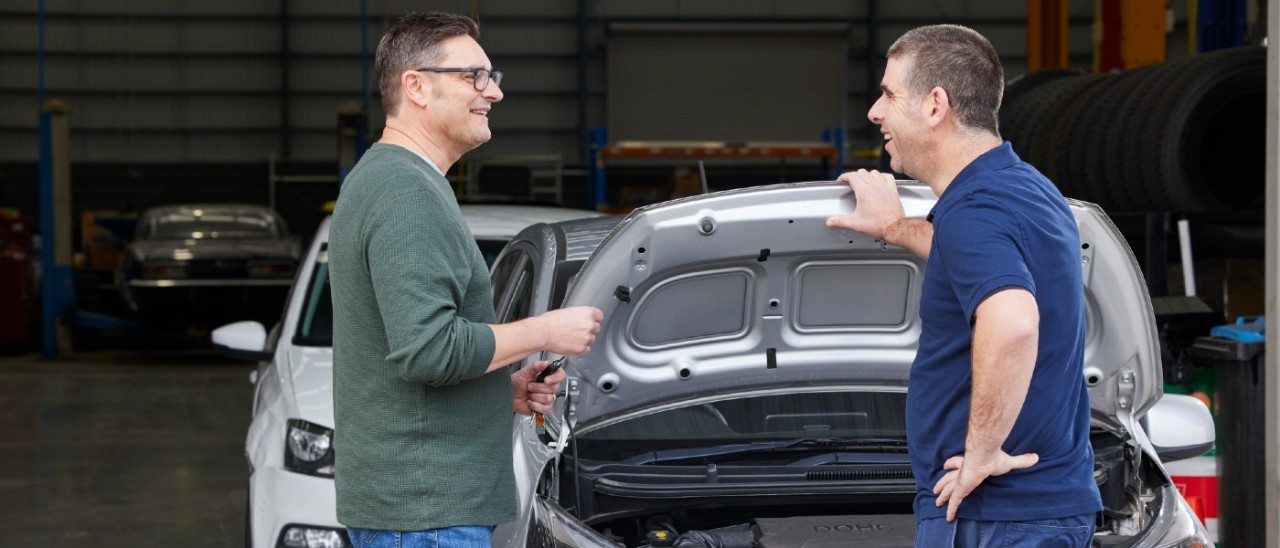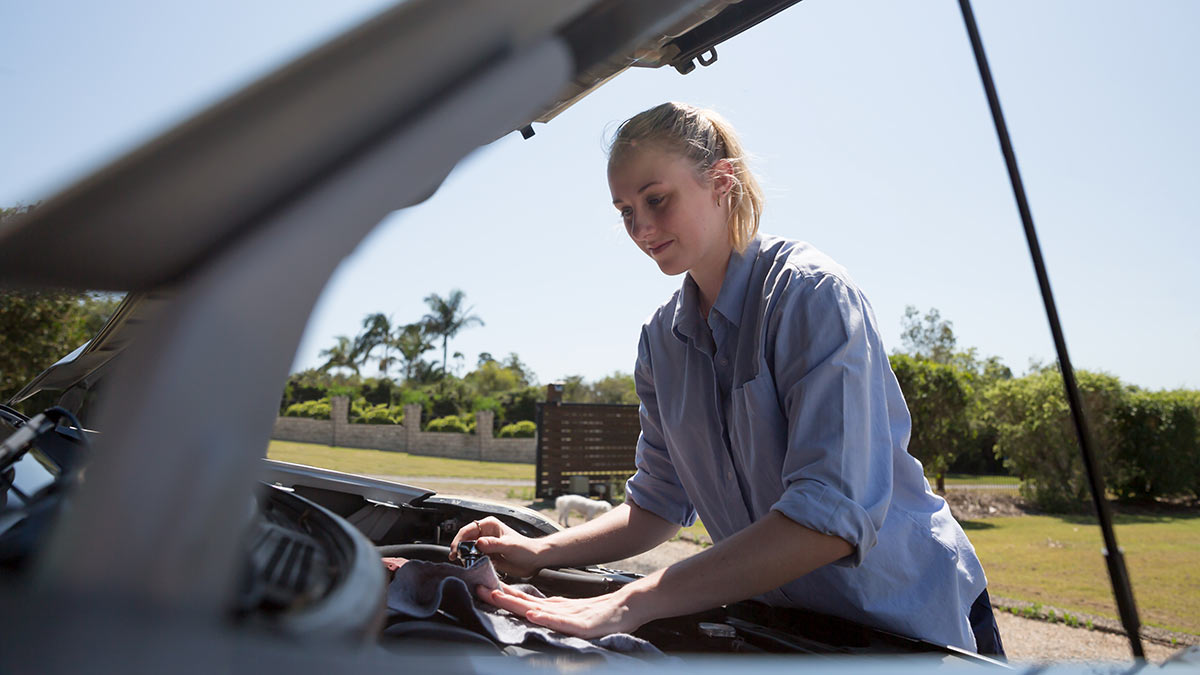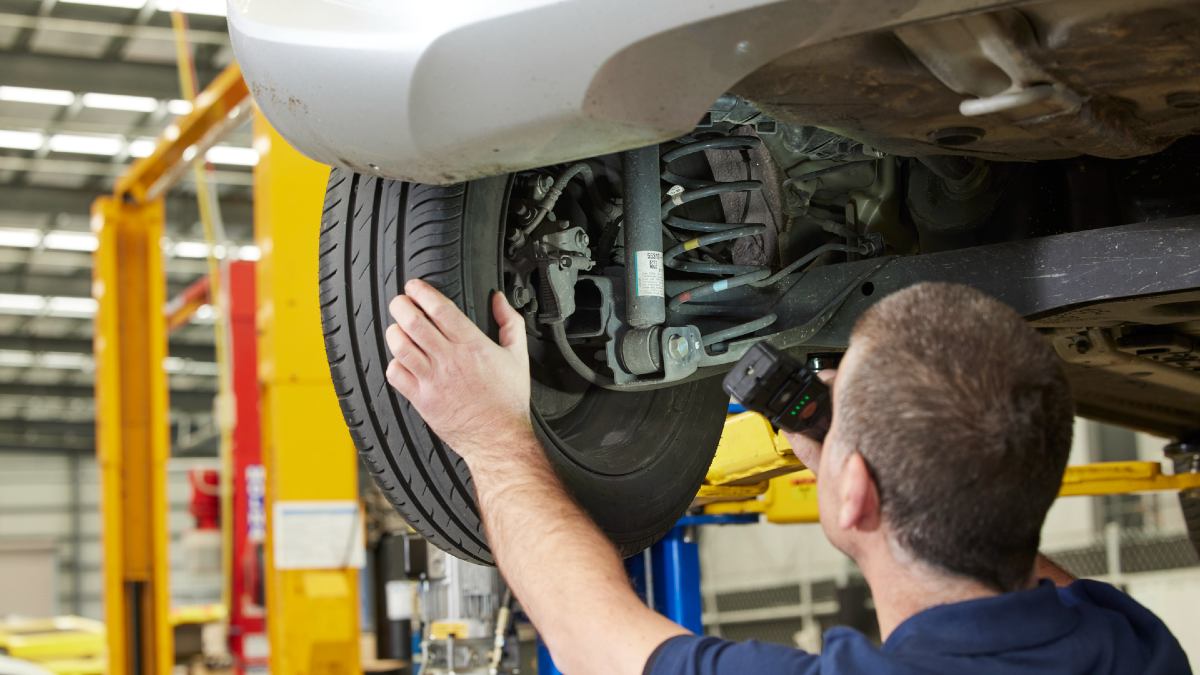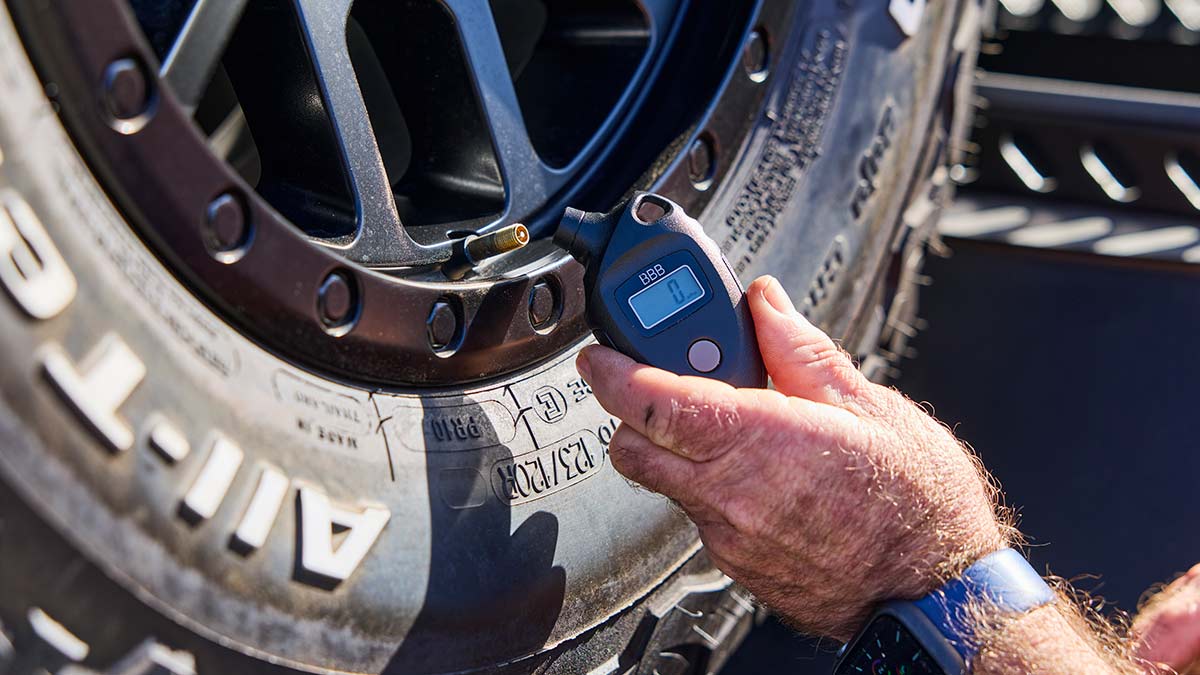If you notice a crack in your windscreen, it's important to get it repaired promptly to ensure your safety and the safety of others on the road.
Car repairs and maintenance you shouldn’t delay

When it comes to vehicle maintenance, delaying essential car repairs can lead to safety issues and higher servicing and repair costs down the road. Here are the top car repairs and maintenance issues you should have fixed immediately.
Car repairs you shouldn't delay are those that impact your vehicle's safety, performance, and overall reliability. For instance, neglecting engine or transmission problems can lead to complete breakdowns and expensive repairs that keep your car off the road for an extended period of time. Addressing these issues promptly not only ensures your vehicle operates efficiently, but also helps maintain its resale value and roadworthiness.
For any car maintenance issues you encounter on the road, ensure that you have adequate emergency roadside assistance coverage in place, and always carry an emergency car kit. When shopping for a used car, purchase a vehicle inspection to avoid buying a vehicle with driveability issues.
Here are the crucial car repairs that you should stay ahead of, according to RACV Digital Motoring Editor Andrea Matthews.
Essential car repairs that you shouldn’t delay
Regular engine oil change
Changing your engine oil is a car maintenance task that's essential to a healthy engine.
"Don't be tempted to extend your engine oil change beyond the manufacturer's recommended interval," Matthews says. "Poor or low engine oil can result in engine damage, including stretched timing chains, which can result in major engine failure.
"Remember to always change an oil filter with your oil. A worn filter can cause serious damage as it deteriorates with use."
Check your owner's handbook for the ideal way to check and replace your oil, or engage your local service centre.

Poor or low engine oil can result in engine damage. Image: Getty
Coolant issues
Persistent coolant issues may be a sign of a serious mechanical issue, and are best left to a licensed auto maintenance and repair centre to investigate immediately.
"If you find you're regularly topping up coolant, then it's important to find out where the coolant is going. The car could have an external leak, or the water could be being used internally," Matthews points out.
"Undiagnosed and unrepaired coolant issues can quickly become costly. If you're advised by your mechanic that a coolant system repair is required (such as water pump or hose leaking), do not be tempted to continue driving. Carry out the repair, or if you are unable to cover the cost, consider alternative transport to avoid more expensive costs down the line."
Suspension repairs
Noticed that your car's ride comfort has deteriorated? Or that your tyres are wearing excessively? These are telltale signs that your vehicle has a suspension issue that needs fixing.
"Once suspension components start to wear, they can cause stress or wear on other expensive components, like your tyres. Leaking shock absorbers or worn suspension bushes don't absorb as much impact as they used to, so you'll find your tyres wear more quickly – increasing the frequency for replacement," Matthews explains.
"Don’t skimp on a wheel alignment once your suspension work is completed – this will ensure everything is working correctly to save additional tyre wear."
More: Tyre maintenance, roadworthy and safety checks
Timing belt replacement
Timing belts tend to be more common on older cars and specific brands. If your car has a timing belt, it's important to be consistent with servicing.
"If you have a vehicle that is driven by a timing belt, then the recommended service interval is really the last point at which the belt should be replaced," Matthews warns.
"A worn timing belt can snap, causing engine failure. It is best practice to replace other timing components (including tensioner) at the same time as a belt, so if you're comparing replacement costs across workshops, ensure you are comparing like with like work.
"If you have a vehicle where the water pump is driven by the timing belt, it's likely that your mechanic will recommend it's replaced at the same time, to avoid the need to redo the timing belt job again, should the original water pump fail. This may add additional dollars to your service, but could save money in the longer term."

A wheel alignment is a good idea after suspension work is completed.
Spark plugs and ignition coils
Spark plugs can impact everything from your fuel efficiency to engine performance, making them an essential engine component to have assessed at an auto service centre.
"Your vehicle will have a recommended interval for spark plug replacement. Depending on the car design, this can be a relatively affordable and quick job, or a really involved and expensive procedure," Matthews says. "It's recommended to replace at the stated interval to avoid starting issues over time. Always replace a set of spark plugs, never just one or two."
"With a petrol car you will also have ignition coils, which can break down over time and will usually present as a misfire, and/or the engine light will illuminate. Coils can be more expensive and ideally you would want to replace a set, but you can get away with replacing faulty ones. Get your mechanic's advice on what’s best for your vehicle."
More: What you need to know about your car battery
Engine lights
An engine light flashing on your dashboard is a reliable sign to head to your mechanic for immediate assessment, or dealer if it's under warranty or a capped price servicing program.
"If an engine light appears, it's a clear indicator that there is something that needs attention," Matthews says. "Even if your vehicle appears to be running fine, it's a great idea to get the warning diagnosed professionally. Don't use a scan tool to clear the code yourself without resolving the root cause, or you could be up for most expensive repairs down the track."
"If you are visiting a mechanic, don’t be tempted to clear the code before you visit, as they may need to see the vehicle in a faulted state in order to correctly diagnose."
Tyres
"Few people enjoy spending money on tyres, but they are one of the most important safety features of a car," Matthews says. Keeping your tyres in good condition, and replacing them before they're unroadworthy, is essential to safe driving.
"Do the research now to understand what tyres will cost to replace on your vehicle when the time comes," Matthews advises. "That way you can plan ahead and build up a tyre savings bucket. Knowing what you'll be up for will at least take away the shock of unexpected bill."
More: How to check your tyre pressure and recommended inflation

Keeping your tyres in good condition is essential for safe driving. Image: Matt Harvey
Creating a maintenance budget
It's important to understand your car's servicing and maintenance requirements so that you can budget for major work ahead of time.
You can find your car's maintenance schedule in its service book, or you can ask your service centre for an idea of what might be expected at your next service. As your vehicle ages, it will require more maintenance outside of standard servicing requirements.
"A good mechanic will be able to let you know what to plan for, so you can budget accordingly," Matthews says. "They might let you know if a part is due for replacement at the next service, or if something is likely to be required in a couple of years. That's also a benefit of having a long term relationship with your mechanic. They will build a picture of how you use your car, and can help you make maintenance decisions accordingly."


